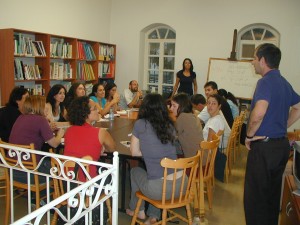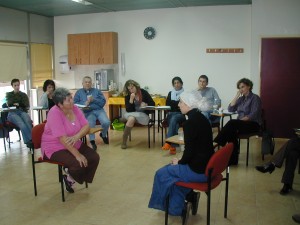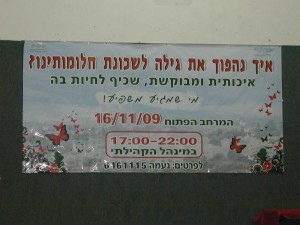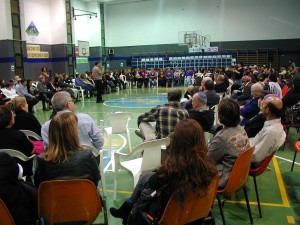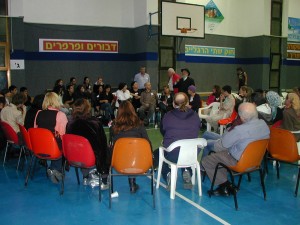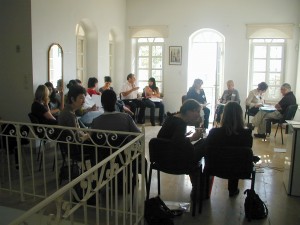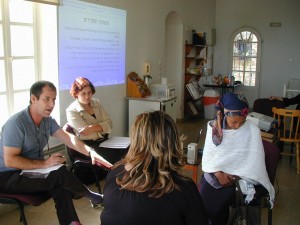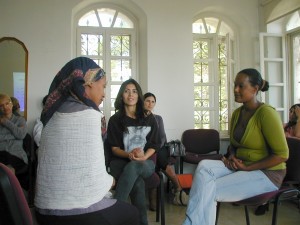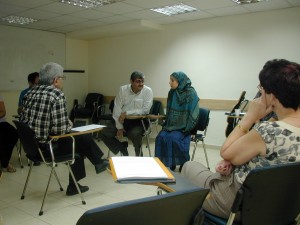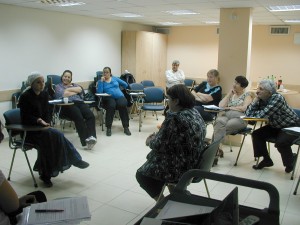The Arabic-Hebrew Studies Center in Jerusalem – Beginning of the 2009-10 classes
On October 12 2009, we began our yearly Arabic courses at the JICC. This year, the beginners’ courses (two groups) started in October with the teacher Suha Kadri, while the intermediate and advanced courses started in mid-November, due to a maternity leave of the teacher Saeeda Subhi. These two excellent teachers have been working with us for four years, allowing us to offer probably the best and most extensive spoken Arabic courses in the city.
The JICC is NOT a language school. Our courses are primarily intended for professionals and volunteers who are required to speak and understand Arabic in their daily work. We are the first city in Israel that claims that Arabic is a MUST for such professionals. This may sound obvious, right? But it is not the case in most parts of Israel.
When we began our courses we could hardly fill the beginners’ course, and there were not enough candidates for the more advanced courses. We opened one beginners’ course and one small intermediate course. Two years ago, we had three full courses – beginners, intermediate and advanced. Last year, the waiting list for the beginners’ course was so long that we were forced to open another course. This year, we had to add a second intermediate course. Altogether, we now have two beginners’ courses, two intermediate courses and one large advanced course (and, we won’t be surprised if next year we will have to expand the advanced course as well…).
We are very pleased to note the increase in interest in these courses and we are sorry for those who did not have a place in the current year and need to wait for next year. It is important to note that the courses are highly subsidized by the Jerusalem Foundation, who shares with us the vision of Arabic as a mandatory language for those who work with Arab population.

